"Be focused, set high standards and go for quality rather than quantity. Have a good work ethic and don't be discouraged by setbacks.”
- Professor Dr Balbir Singh Mohan Singh -
From the Sporting Fields to the Science Labs
Despite having a natural talent for hockey and cricket, Professor Dr Balbir Singh Mohan Singh had ambitions of becoming a doctor at a very young age as he wanted to heal the sick. During his postdoctoral stint at the Liverpool School of Tropical Medicine, Professor Dr Balbir spent 4 weeks in Malawi, Africa, where he had an eye-opening experience after seeing severely ill malaria patients for the first time.
Professor Dr Balbir most notably discovered that the monkey malaria parasite, Plasmodium knowlesi, was causing malaria in humans. This was followed by other pioneering work on the molecular epidemiology, population genetics and clinical aspects of knowlesi malaria, placing UNIMAS’ Malaria Research Centre on the world map for malaria research.
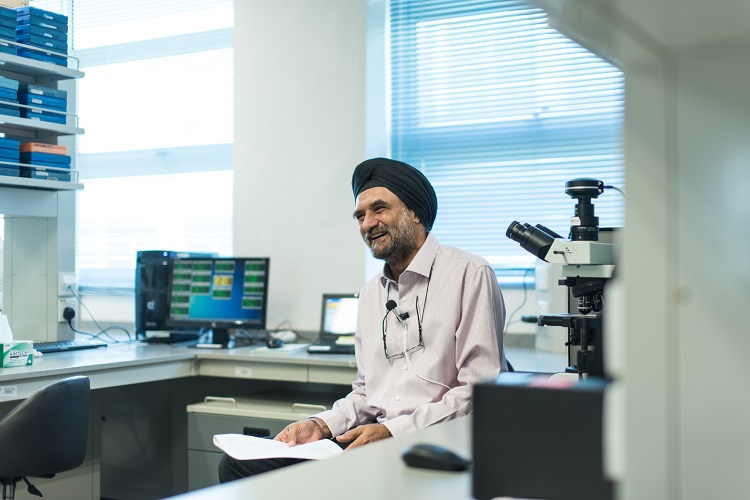
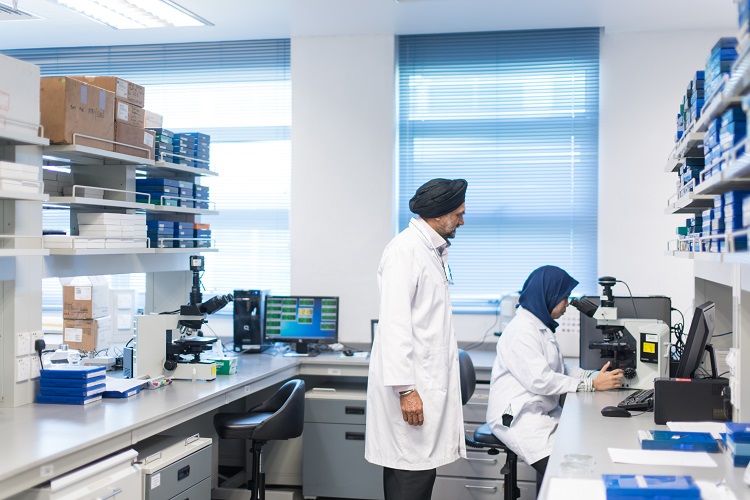
Walking down a chosen path
Professor Dr Balbir, born on March 30, 1955, in Segamat, Johor, is the middle child among five siblings. His parents, Mohan Singh and Harjit Kaur, emphasised education but allowed their children to choose their paths.
At 18, Professor Dr Balbir went to England for A levels but ended up studying Biochemistry at Liverpool University. His honours project at the Liverpool School of Tropical Medicine (LSTM) sparked an interest in research, leading him to pursue a PhD in Immunology at the University of Liverpool.
After earning a BSc (Hons) in Biochemistry, Professor Dr Balbir pursued further studies at LSTM, enrolling in the MSc course in Parasitology and Medical Entomology in 1979. Inspired by renowned scientists like Dr. Owen Goldring, an Immunologist, Professor Dr Balbir decided to pursue a PhD in Immunology. With a postgraduate scholarship from the University of Liverpool, he studied the role of certain bacteria in ankylosing spondylitis at the Department of Medicine.
Under the guidance of Professor John Woodrow and Dr. Jerry Milton, Professor Dr Balbir completed his PhD in Immunology/Microbiology, while actively participating in sports as the captain of the Liverpool University first XI hockey team and the LSTM cricket team.
.jpg.aspx)
Family photo, 1970

1 year old
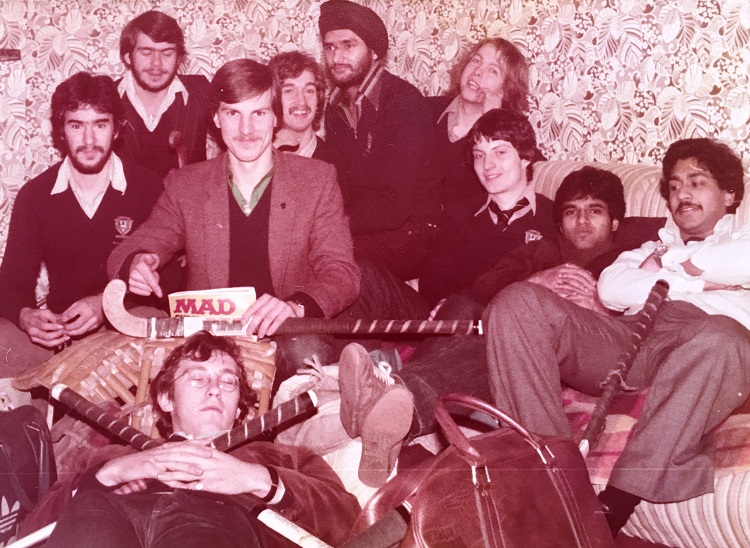 University hockey team, 1980
University hockey team, 1980
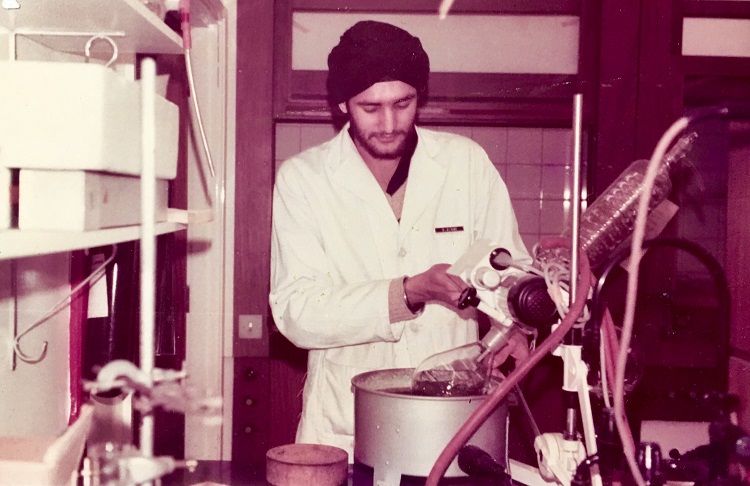 In the lab for final year project at University of Liverpool in 1979
In the lab for final year project at University of Liverpool in 1979
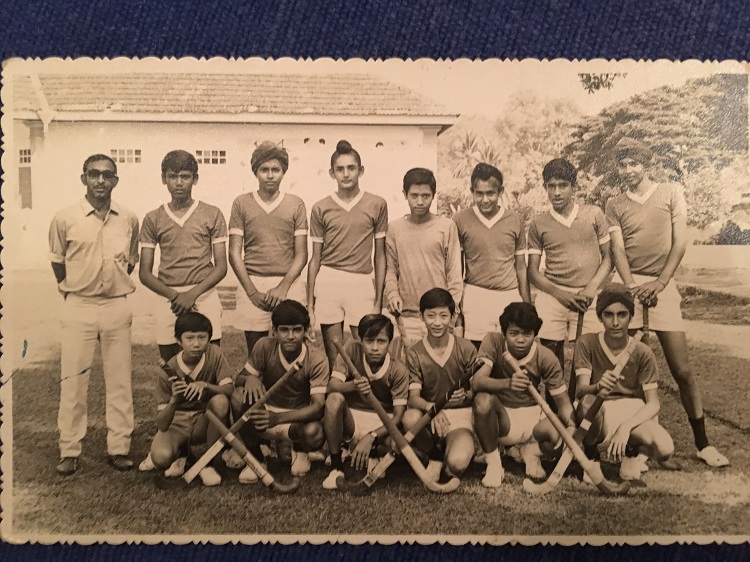 Secondary English school team with coach, C Williams
Secondary English school team with coach, C Williams
A lifetime of malaria research
Professor Dr Balbir’s malaria research began at the Liverpool School of Tropical Medicine, where he worked as a Postdoctoral Senior Research Assistant in the Wolfson Immunology Unit.
Awarded the prestigious Beit Medical Fellowship in 1988, Professor Dr Balbir delved into molecular and biological aspects of malaria at the Wolfson Medical Genetics Unit at LSTM.
After being abroad for 18 years, Professor Dr Balbir and his wife, Janet Cox-Singh, a fellow malaria researcher, accepted lectureships at Universiti Sains Malaysia (USM) in 1992 and returned to Malaysia.
Later, an opportunity came about to kickstart lab-based research at the Faculty of Medicine and Health Sciences at Universiti Malaysia Sarawak (UNIMAS), which prompted Professor Dr Balbir and his wife to move from USM to UNIMAS. It is during his time here that Professor Dr Balbir would make crucial discoveries in malaria research.
Recognised for his contributions, Professor Dr Balbir received the Top Research Scientists Malaysia Award in 2012 and was elected as a Fellow of the Academy of Sciences Malaysia in 2015.
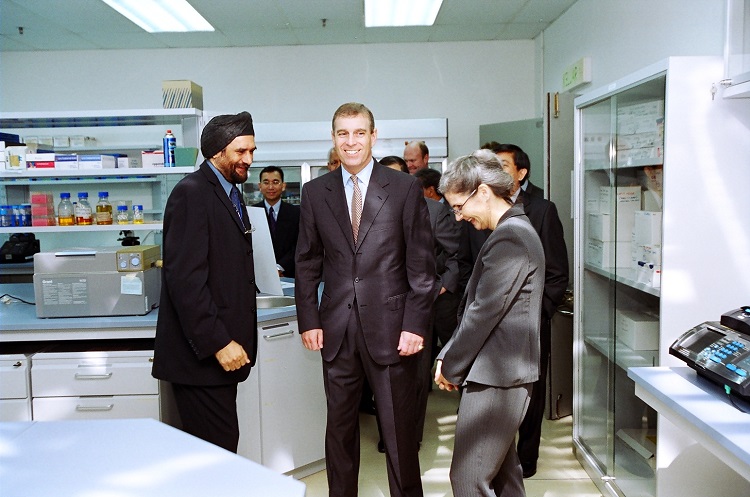
Visit by HRH Duke of York, Prince Andrew
Disclaimer:
The information in this award recipient's profile is accurate to the best of our knowledge as of the time the award was presented. Any subsequent changes, updates, or developments in the individual's life or achievements may not be reflected in this profile.